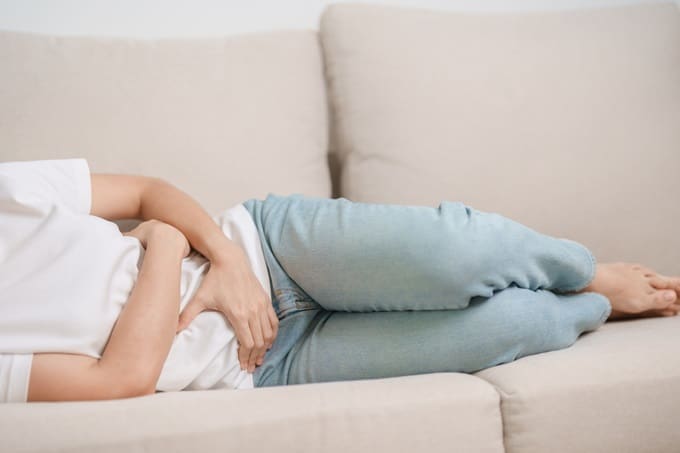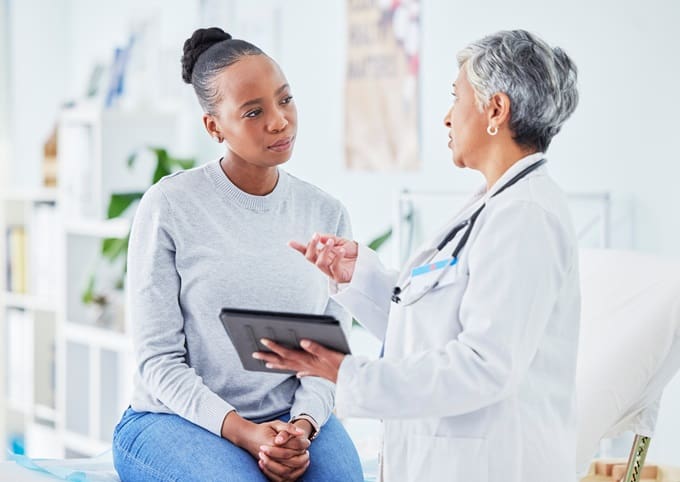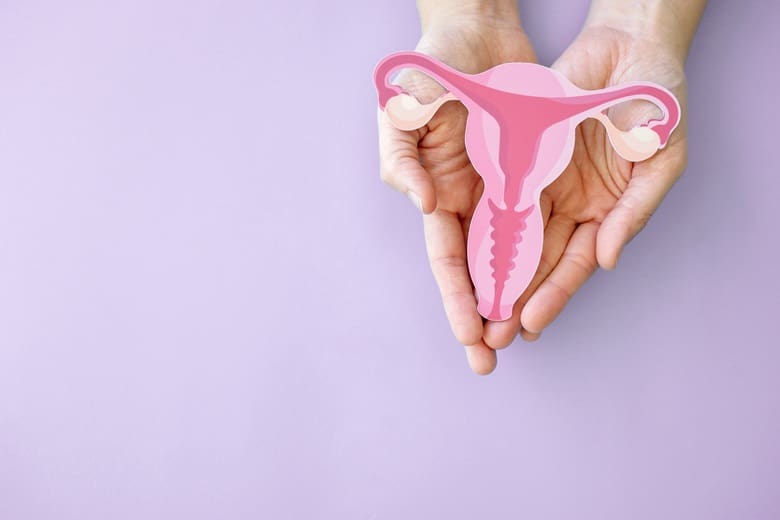Table of Contents
PCOS vs Endometriosis. Both Polycystic Ovarian Syndrome and endometriosis apply to women between the ages of 12 to 52. They effect the menstrual cycle and can also make a difference to the likelihood of conception. Certain symptoms may be similar, but in fact the two conditions are triggered in very different ways.
Difference Between PCOS and Endometriosis
The primary variance between these two conditions is that with PCOS the problems are caused by an excess of androgen hormones, the main one being testosterone, but with endometriosis the culprit is an excess of oestradiol which is a form of oestrogen.
Both conditions cause menstrual problems and can make getting pregnant difficult but certainly not impossible.
Endometriosis
The skin, or tissue which lines your uterus is called the endometrium and if this type of tissue develops in other internal parts of your body, mainly the reproductive system, this causes endometriosis to occur. The usual cause of this happening is when there is an unusually high level of oestradiol which is the hormone responsible for the growth of uterine tissue.
The areas where endometriosis most often occurs are on the outside of the uterus, the fallopian tubes, the pelvic cavity, the rectovaginal area, and the ovaries. In some cases, other parts of the body may be affected such as the intestines, the appendix, the diaphragm, lungs, and rectum.
Affected tissue may thicken and bleed at the time of menstruation and this causes areas of painful inflammation.

PCOS
PCOS is a hormonal disorder that affects your ovaries. The main characteristics include high levels of androgens, ovarian cysts, irregular periods or no periods at all.
A report by The National Institute of Child Health and Human Development (NICHD) and published in Medical News Today sets out a table of symptoms of both PCOS and endometriosis. You may find this a quick and easy guide to the basic differences between the two conditions:
| Endometriosis | PCOS |
| Painful periods | Missed periods |
| Heavy bleeding | Heavy bleeding |
| Lower back pain during period | Irregular periods |
| Painful bowel movemenets | Cysts on ovaries |
| Difdiculty getting pregnant | Difficulty getting pregnant |
| Painful urination | Hirsutism (excess hair growth) |
| Pain during sex | Acne |
| Pelvic pain | Oily skin |
| Digestive issues | Thinning hair |
| Intestinal pain | Dark, thicker skin patches |
Causes of PCOS vs Endometriosis
The exact cause of endometriosis and PCOS are unknown, but research has identified some possible explanations.
Causes of Endometriosis
Research published in PubMed Central state that genetic, environmental, nutritional, and metabolic factors have been identified as some of the main causes of the syndrome. Several other issues can result in endometriosis.
- Retrograde Menstruation – This is a condition which may occur when uterine tissue transfers via the fallopian tubes into the pelvic cavity during the time of your period. This happens to most women but generally the immune system deals with it so that it doesn’t cause a problem.
- Impaired Immune System – If you have an impaired immune system, then endometriosis can result.
- Endometrial Cell Transport – Blood vessels or your lymphatic system may transport endometrial cells to other parts of your body.
- Coelomic Metaplasia – Some cells convert into endometrial cells, and this may be the reason why endometriosis can crop up in areas other than the uterus.
- Stem Cells – This theory suggests that certain stem cells may cause regenerating endometrial tissue during the menstrual cycle which may then spread to other parts of the body, causing endometriosis.
Certain factors could give a higher risk of endometriosis:
- If you have a family history of endometriosis.
- Starting periods at a very young age – before 11 years.
- If you have a short menstrual cycle of less than 27 days.
- When you have very heavy periods which last for more than 7 days.
Causes of PCOS
High levels of androgen hormones such as testosterone may cause PCOS. There are also other issues which may cause or aggravate the condition. As in the case of endometriosis, research has identified genetic, environmental, nutritional, and metabolic factors have been identified as some of the main causes of the syndrome:
- Insulin resistance – this is a further cause of the onset of the syndrome as well as being a symptom. When insulin levels are too high it can cause your ovaries to produce extra male hormones.
- High levels of inflammation – this can lead to excessive production of male hormones.
- Genetic history – having a family history of PCOS may predispose you to developing the syndrome.
- Diabetes – When insulin resistance leads to type 2 diabetes this can make developing PCOS more probable.
- Carrying excess body fat – being overweight or obese is a cause as well as a symptom of PCOS. This is particularly true when the extra fat stores are gained rapidly.
Being overweight can also lead to insulin resistance and diabetes but many women develop PCOS who are not overweight.
Can You Have PCOS and Endometriosis?
Yes. It is not uncommon to have both conditions simultaneously but they both have a different set of symptoms, so need different treatments.
Results of a 2015 Australian study published in the Journal of Clinical Endocrinology, showed that women with PCOS are more prone to also being diagnosed with endometriosis.
Two earlier studies, one from 2011 and another from 2014, showed that there is a strong link between endometriosis and PCOS. These studies indicated that high levels of androgens and insulin from PCOS could boost levels of oestradiol, increasing the risk of endometriosis. They also concluded that there was a significance association between endometriosis and women with PCOS who also had high levels of pelvic pain and/or infertility.
How are PCOS and Endometriosis diagnosed?
Doctors use various tests to diagnose either or both conditions.
It is most usual for a test to take place if a patient presents with symptoms such as irregular periods, although sometimes the condition may be diagnosed while treatment is being given for an unrelated issue.
Endometriosis Diagnosis
When testing for endometriosis a doctor will ask general health questions and may also ask whether the condition may be genetically inherited.
Blood tests can show up any abnormal hormone levels and inflammation.
A pelvic examination is usually given to look for scar tissue. Quite possibly an ultrasound scan or MRI will be the next step in establishing if the condition exists.
A laparoscopy, which involves the surgeon making a small incision, may be carried out to check for abnormal tissue growth.
PCOS Diagnosis
Blood tests will help a doctor assess inflammatory markers which could indicate PCOS.
A pelvic examination will show the presence of cysts.
Ultrasound Scan will show images of your ovaries and uterus to help doctors with a diagnosis.
As PCOS is sometimes inherited genetically, your family medical history will give a good indication of whether you are predisposed to the syndrome.

Is Treatment the Same for Both Conditions?
Both PCOS and endometriosis are treated with medication and sometimes with surgery.
Endometriosis Treatment
Treatment is geared to lowering oestrogen levels and controlling pain.
Medication such as the birth control pill can help lower oestrogen and reduce the growth of endometrial tissue. Over-the-counter pain relief is often recommended for managing the pain caused by endometriosis.
In terms of surgery, a procedure to remove endometrial tissue growth is sometimes performed or hysterectomy is sometimes the solution if you are not planning to become pregnant.
Lifestyle changes such as a wholefood diet, extra physical activity, and better-quality sleep are recommended for helping to manage the symptoms of endometriosis.
PCOS Treatment
Treatment aims to achieve ovulation and to lower androgen hormones.
Medication to help induce ovulation is available if you are trying to become pregnant. If not, taking birth control or diabetes medication will help to lower androgen hormone levels.
Laparoscopic Surgery to destroy androgen-releasing tissue in the ovaries is an option if ovulation medication doesn’t help.
Ensuring a wholefood diet and regular physical activity will help you lose weight if this is an issue. Losing stored body fat may significantly help reduce your symptoms.
Supplements for PCOS and Endometriosis
There are many natural supplements and vitamins that may help to reduce the symptoms associated with endometriosis and PCOS. Take a look at the blogs below for in-depth information.
The Complete Guide to Endometriosis: What Is It and How Can Natural Remedies Help?
Support Groups are Available to Help
Help and support is out there for you if you are suffering with endometriosis and/or PCOS.
For Endometriosis UK you can find your local branch from their website and tap into their support systems.
For PCOS UK support, contact Verity (verity-pcos.org.uk).
Our Promise
When it comes to keeping you informed on health and nutrition, we’re here for you and aim to help where we can. If you would like to discuss any aspect of using natural supplements, or would find advice helpful, please feel free to contact us on 01297 553932.
Always very efficient. Packages are able to come through the letter box which is a bonus. Particularly appreciate the vegan omega 3.
Over several years now they have always delivered me quality products prompty. I can recommend Supplement Place without hesitation.
Excellent service. I love the thin storage friendly containers that take up minimal space in my cupboard. Such a brilliant idea!! ?

